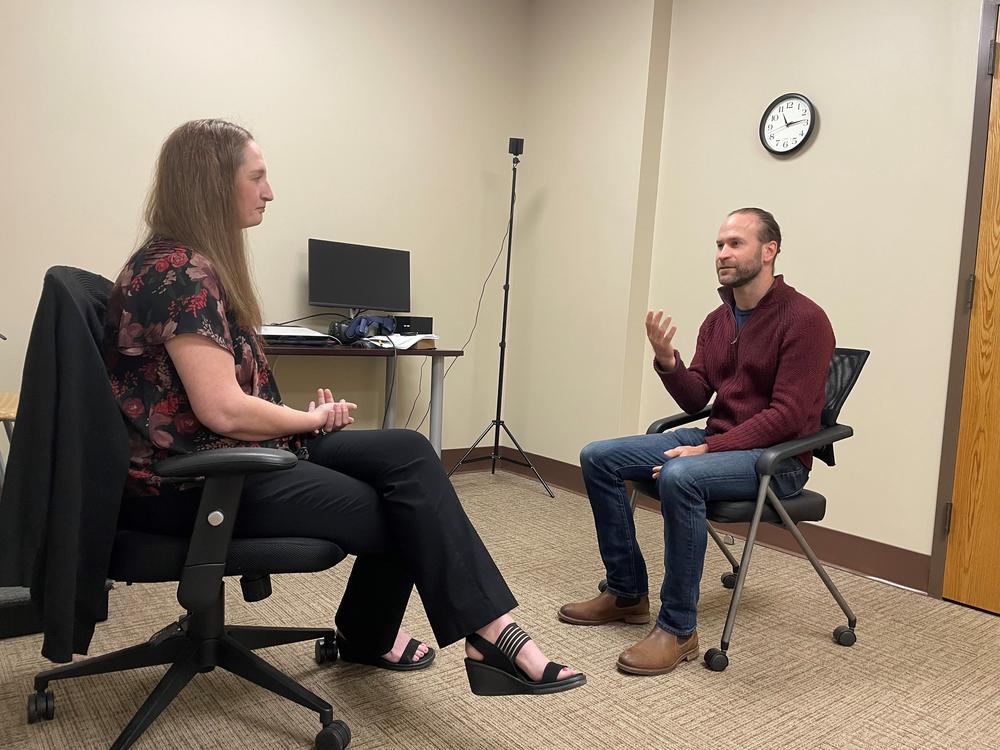
Caption
Two clinical counseling psychology students — Kristen Inman (left) and David Jenkins — conduct a mock therapy session as part of the new clinical counseling psychology degree program at Brenau University.
Credit: Ellen Eldridge / GPB News


